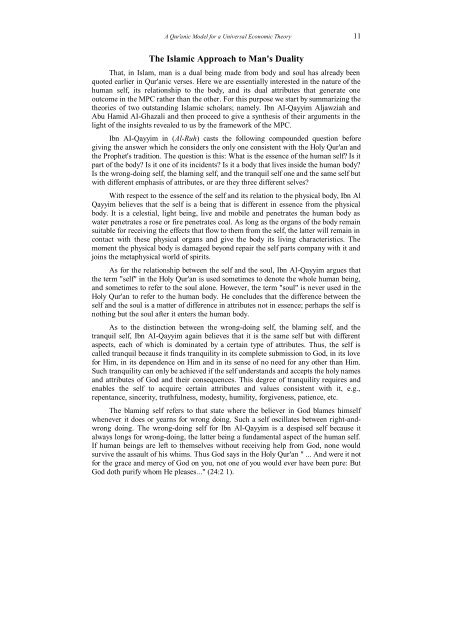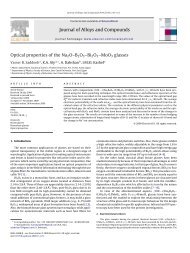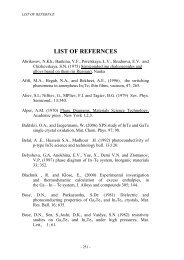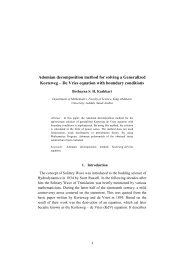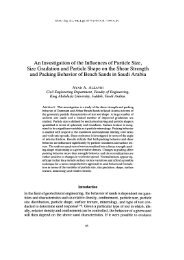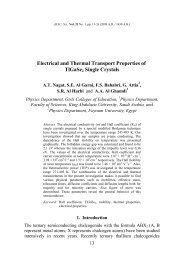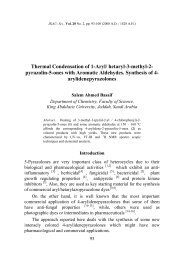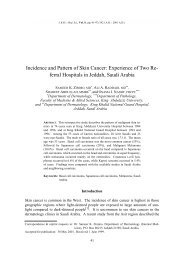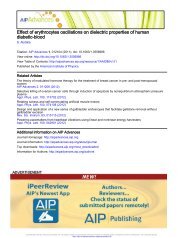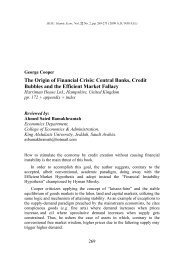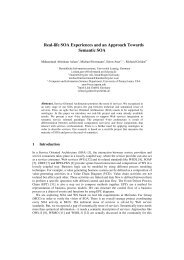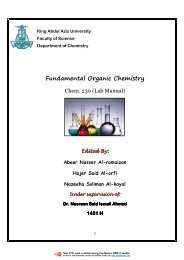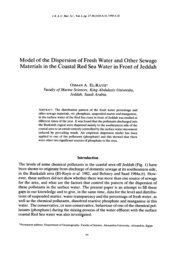A Qur'anic Model for a Universal Economic Theory
A Qur'anic Model for a Universal Economic Theory
A Qur'anic Model for a Universal Economic Theory
Create successful ePaper yourself
Turn your PDF publications into a flip-book with our unique Google optimized e-Paper software.
A Qur’anic <strong>Model</strong> <strong>for</strong> a <strong>Universal</strong> <strong>Economic</strong> <strong>Theory</strong> 11<br />
The Islamic Approach to Man's Duality<br />
That, in Islam, man is a dual being made from body and soul has already been<br />
quoted earlier in <strong>Qur'anic</strong> verses. Here we are essentially interested in the nature of the<br />
human self, its relationship to the body, and its dual attributes that generate one<br />
outcome in the MPC rather than the other. For this purpose we start by summarizing the<br />
theories of two outstanding Islamic scholars; namely. Ibn AI-Qayyim Aljawziah and<br />
Abu Hamid AI-Ghazali and then proceed to give a synthesis of their arguments in the<br />
light of the insights revealed to us by the framework of the MPC.<br />
Ibn AI-Qayyim in (Al-Ruh) casts the following compounded question be<strong>for</strong>e<br />
giving the answer which he considers the only one consistent with the Holy Qur'an and<br />
the Prophet's tradition. The question is this: What is the essence of the human self? Is it<br />
part of the body? Is it one of its incidents? Is it a body that lives inside the human body?<br />
Is the wrong-doing self, the blaming self, and the tranquil self one and the same self but<br />
with different emphasis of attributes, or are they three different selves?<br />
With respect to the essence of the self and its relation to the physical body, Ibn Al<br />
Qayyim believes that the self is a being that is different in essence from the physical<br />
body. It is a celestial, light being, live and mobile and penetrates the human body as<br />
water penetrates a rose or fire penetrates coal. As long as the organs of the body remain<br />
suitable <strong>for</strong> receiving the effects that flow to them from the self, the latter will remain in<br />
contact with these physical organs and give the body its living characteristics. The<br />
moment the physical body is damaged beyond repair the self parts company with it and<br />
joins the metaphysical world of spirits.<br />
As <strong>for</strong> the relationship between the self and the soul, Ibn AI-Qayyim argues that<br />
the term "self" in the Holy Qur'an is used sometimes to denote the whole human being,<br />
and sometimes to refer to the soul alone. However, the term "soul" is never used in the<br />
Holy Qur'an to refer to the human body. He concludes that the difference between the<br />
self and the soul is a matter of difference in attributes not in essence; perhaps the self is<br />
nothing but the soul after it enters the human body.<br />
As to the distinction between the wrong-doing self, the blaming self, and the<br />
tranquil self, Ibn AI-Qayyim again believes that it is the same self but with different<br />
aspects, each of which is dominated by a certain type of attributes. Thus, the self is<br />
called tranquil because it finds tranquility in its complete submission to God, in its love<br />
<strong>for</strong> Him, in its dependence on Him and in its sense of no need <strong>for</strong> any other than Him.<br />
Such tranquility can only be achieved if the self understands and accepts the holy names<br />
and attributes of God and their consequences. This degree of tranquility requires and<br />
enables the self to acquire certain attributes and values consistent with it, e.g.,<br />
repentance, sincerity, truthfulness, modesty, humility, <strong>for</strong>giveness, patience, etc.<br />
The blaming self refers to that state where the believer in God blames himself<br />
whenever it does or yearns <strong>for</strong> wrong doing. Such a self oscillates between right-andwrong<br />
doing. The wrong-doing self <strong>for</strong> lbn AI-Qayyim is a despised self because it<br />
always longs <strong>for</strong> wrong-doing, the latter being a fundamental aspect of the human self.<br />
If human beings are left to themselves without receiving help from God, none would<br />
survive the assault of his whims. Thus God says in the Holy Qur'an " ... And were it not<br />
<strong>for</strong> the grace and mercy of God on you, not one of you would ever have been pure: But<br />
God doth purify whom He pleases..." (24:2 1).


